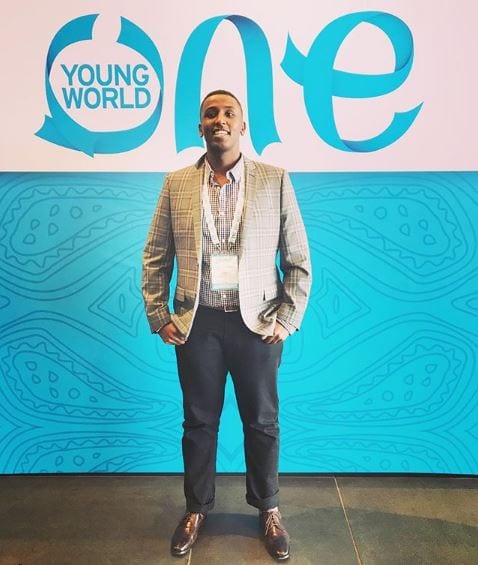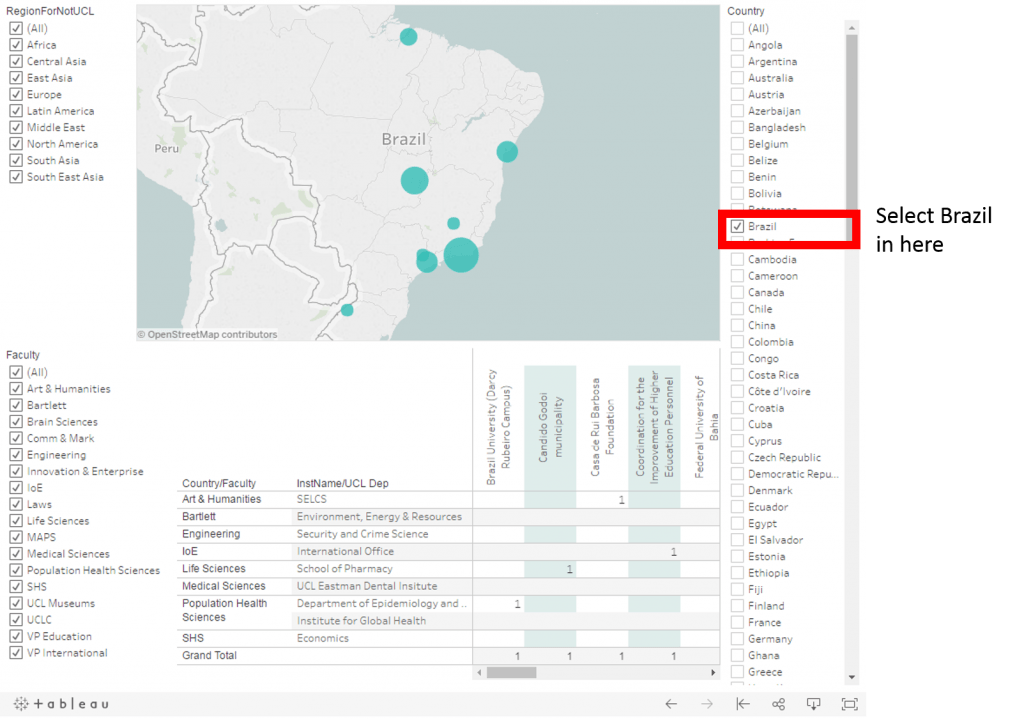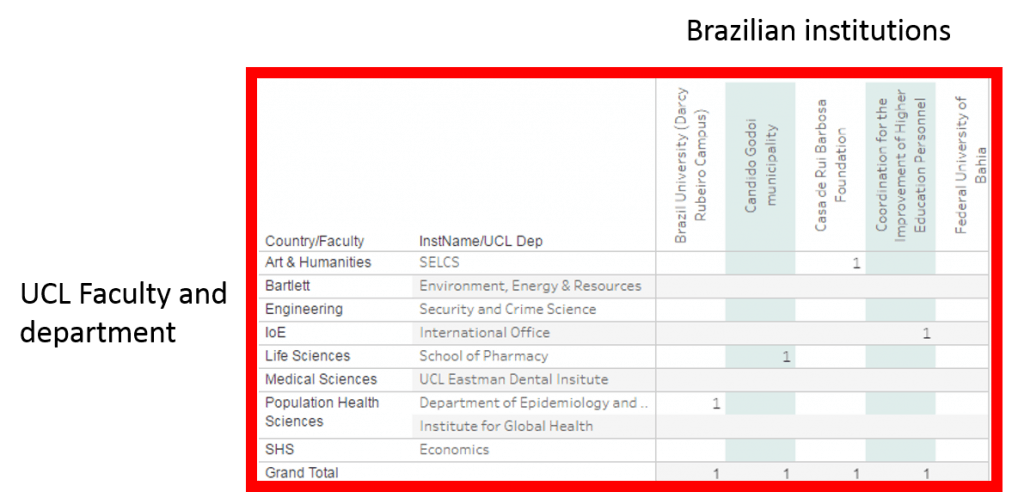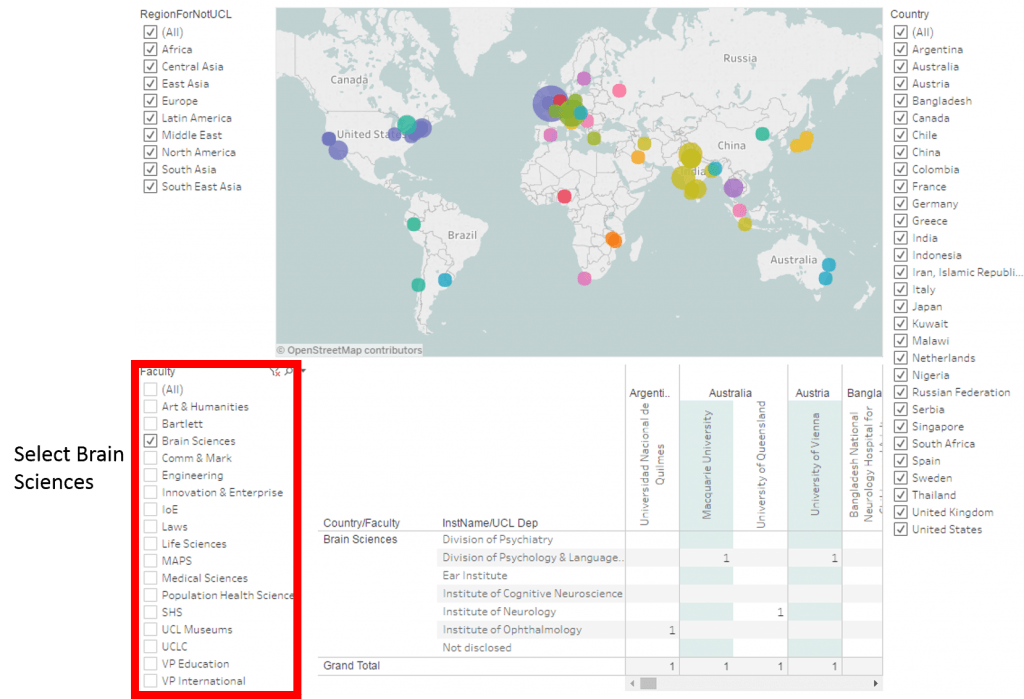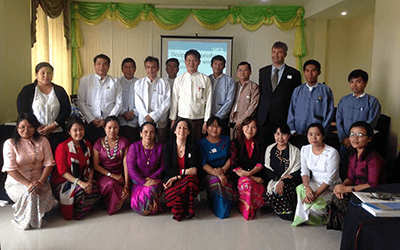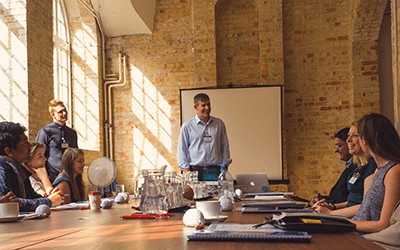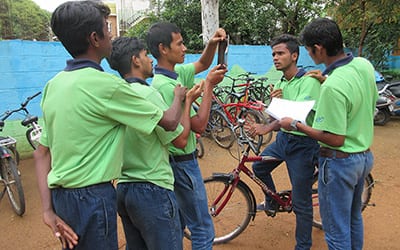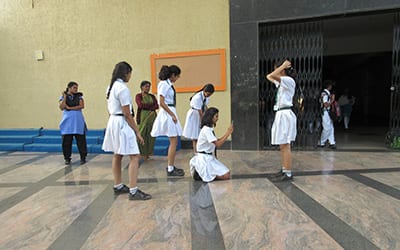By 2030, will universities ‘walk fast and alone – or walk far and together’?
By ucypnmb, on 23 February 2018
Nicola Brewer, UCL’s Vice-Provost International, provided this guest blog for Wonkhe’s HE Futures series. It was originally published here.
If Nelson Mandela was right – and I firmly believe he was – education is “the most powerful weapon which you can use to change the world”. So, what should higher education leaders do for the best when both the public benefit of universities and the benefits of globalisation are disputed?
First off, we need to continue to create and share knowledge, which is fundamentally what universities do. Taking that knowledge and putting it to work in the world, in a way that addresses pressing local, national or global problems, is how universities bring benefit to society. Increasingly, those problems are global, and intensely complex. No single country, institution – no matter how prestigious – or discipline, can tackle these challenges alone.
To deal with issues such as climate change; food, water and energy security; sustainable cities, we need diversity and excellence. Some people see a tension between the two. I don’t. Instead I see a risk in defining excellence too narrowly, only recognising it in people or careers that look like yours or those you already know and respect. Bringing together diverse perspectives, through combining different disciplines and experiences, accelerates the process of discovery. And bringing together experts, irrespective of where they are in the world, means that the very best minds can be focussed on finding the solutions we all need.
Global issues, global solutions
Where will we find those people? The UN estimates that there will be a small decline in the population of Europe between 2015 and 2030 (738m to 734m). Over the same period, the population of Asia will increase by 12% (4.4bn to 4.9bn) and the population of Africa by 42% (1.19bn to 1.68bn). Alongside those big demographic changes, you need to consider other trends, like the ‘massification’ of higher education: UCL’s Centre for Global Higher Education calculates that, in Europe, participation in tertiary education (mostly degree programmes) rose from 50% in 2000 to 75% in 2014. If you believe that talent is evenly distributed across populations, you’ll be missing out on huge potential pools of talent if you don’t look far and wide for it.
In a world where inter-connectedness is no longer a given and global citizenship no longer automatically seen as a positive, universities should seek out ways to make and strengthen alliances, supporting collaboration between individual academics and faculties as well as at institutional level. At UCL, we do this through what we call ‘global partnerships of equivalence’, which are at the heart of our Global Engagement Strategy.
What we mean by a partnership of equivalence is an alliance based on mutual trust and respect, from which both sides derive value. It’s reciprocal, but not in a quid pro quo kind of way. UCL has produced 29 Nobel prize-winners. We are immensely proud of all of them. But we also recognise that we can still learn as much as we can teach. We know we have to understand what it’s like to walk in other people’s shoes, to learn from the paths they’ve travelled and where they’re heading to.
It’s relatively easy to announce the beginning of a partnership. True partnerships of equivalence are hard to create. I know this from my time leading global engagement at UCL, and a long career as a diplomat. They’re hard, partly for the same reasons all meaningful relationships are hard: you have to find the right one (or ones) for you; you have to work at them; and they take a lot of time as well as intellectual and emotional effort to maintain, not least because they involve confronting history not written by the so-called winners.
Supporting everyone
This idea of mutual benefit and universities as global team players is something that Adam Habib, Vice Chancellor of the University of the Witwatersrand, articulates really clearly. He says that universities should act “in a way that supports the global academy of commons rather than simply advancing the individual aspirations of institutions”. The creation and sharing of knowledge is quintessentially international. That makes it, or should make it, a shared mission. So, we should enter into partnership with a generous spirit as well as open minds. That is what gives us the best chance of creating equal partnerships in what is still a very unequal world.
At UCL, we sum up our desire to do this in one of five drivers for our global engagement: ‘Increasing global independent research capability’. We deliberately avoid the (usually unintentionally) patronising term ‘capacity building’. I have yet to meet anyone who asks to have their capacity built. Generosity of spirit requires more than a dash of humility: you never know what you can learn if you’re open to it. And if you aren’t, the chances are that your supposed partner won’t be in the right frame of mind either. One tip, which I learned as a diplomat, is to start a conversation from where the other person is, not where you want it to go. That way, you’re more likely to make a genuine connection. Luckily, academics are fantastic at that. UCL academics, I quickly learned, are the best guides to fellow experts and enthusiasts in their field, of whatever nationality, gender, background or discipline.
The emphasis on excellence and diversity is critical. I haven’t done a literature review of research into the so-called ‘wisdom of crowds’, though I am intrigued by the work of Daniel C Richardson’s Eye Think Lab at UCL and the phenomenon of social media bubbles that reinforce bias rather than create wisdom. But this is where there is an important place for experts and scholarship, to focus on an issue, explore it carefully from as many perspectives as possible and present peer-reviewed results. As Michael Grubb wrote, “science is slow”. So is the creation of a real partnership. At UCL, our aim is to develop international partnerships that last at least 10 years, and deliver global impact over that timescale. Not a headline for tomorrow’s fish and chip wrapper.
Real partnership
What our Global Engagement Strategy aims to do is to make sure we first look as far and wide as possible for partners, starting from our existing collaborations with individual academics world-wide, and then focus our cross-institutional support on a set of strategic partnerships to have maximum impact.
One of the ways we’re searching widely is through financial and practical support for the Council for At Risk Academics (cara). Cara works to enable at risk academics, many of whom are desperate and in immediate danger, to continue their work as researchers and educators. You only have to hear the story of one of our cara Masters scholars, whom we were able to bring to UCL from Syria with a fee waiver and full scholarship, to understand the impact of their work. He was studying in Syria when, all of a sudden, he was thrown off his course and fired from his job. He was imprisoned and tortured. It took his father six months to get him released. He describes the opportunity to come to UCL as “life-saving in the literal sense”.
Universities have a vital role to play in maintaining global inter-connectedness and belief in its value. The best way to play that role is to create and share knowledge through international partnerships. And the best way to create lasting global partnerships is to make sure they are based on mutual trust and respect. Easy to say, harder to do.
More universities are starting to follow this path. As UCL was developing its Global Engagement Strategy in 2014, we reviewed the international strategies of 55 universities. One of the top three common factors was solving global problems through research partnerships. And there is growing use of the term ‘global engagement’ rather than ‘internationalisation’ (with its implied narrow focus on recruitment of international staff and students). I predict that by 2030, it will be more common for research intensive universities to profile their strategic global partnerships than their overseas campuses. The proof of the partnership concept will be to demonstrate, not the number of them, but their positive global impact. After careful consultation, UCL is placing its global bet on partnership as a path to global impact.
As the African proverb goes, ‘if you want to walk fast, walk alone. If you want to walk far, walk together’.
 Close
Close





